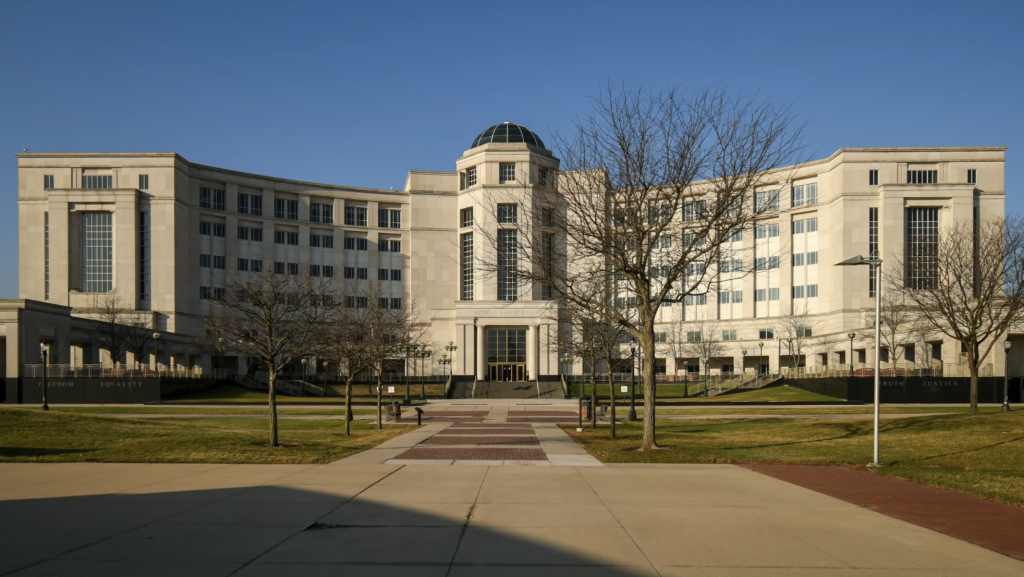Michigan Supreme Court sets stage for minimum wage boost
Rick Pluta August 1, 2024The 4-3 decision will likely boost the current $10.33 hourly wage above $12 in the state next year.

The Michigan Hall of Justice.
Minimum wage workers in Michigan are in line for a big pay raise in February under a ruling Thursday from the state Supreme Court.
A 4-3 Supreme Court majority held that legislative Republicans in 2018, using “an unprecedented and unconstitutional act,” undermined Michigan voters’ rights to initiate and adopt laws. The decision will likely boost the current $10.33 hourly wage above $12 next year.
“What the court confirmed is the people’s right to petition is more than political, it is sacred,” said Chris White, director of the Restaurant Opportunities Center of Michigan, which represents food service workers. “It’s a victory and it puts us on par with other states that are increasing their minimum wage and we’re very, very, very thankful with what the Supreme Court has decided.”
In 2018, two petition campaigns gathered enough signatures to put questions on the ballot. One would have boosted the state minimum wage and phased out a lower minimum wage for workers who get tips, and the other would have required most employers to allow workers to accrue earned sick leave. Both questions were considered very likely winners that would also draw Democrats and progressive voters to the polls.
Republican legislators, who controlled the House and the Senate at the time, held their own votes on the initiatives and adopted the measures to prevent them from going to the ballot. The Supreme Court agreed that was constitutional.
But the court held the violation occurred when the Legislature returned after the election and, in the 2018 lame duck session, altered the provisions to delay and scale back minimum wage and paid sick leave requirements to address complaints from business groups. The new versions were adopted with simple majorities. Waiting until future sessions would have required three-quarter supermajorities.
“In stopping the Republican Legislature from denying Michigan’s voters the ability to vote for these popular ballot measures, our Supreme Court has returned the power to petition the government to the people of Michigan,” said Mark Brewer, one of the attorneys who argued the case.
The dissent argued that there is no specific prohibition in the Michigan Constitution to the Legislature’s “adopt-and-amend” scheme.
Business groups bemoaned the majority decision.
“These changes will impact nearly every business across Michigan,” said Wendy Block with the Michigan Chamber of Commerce. “We are preparing for the harsh realities of this decision that jobs will be lost and some businesses will be forced to close because of this unprecedented decision.”
Trusted, accurate, up-to-date.
WDET strives to make our journalism accessible to everyone. As a public media institution, we maintain our journalistic integrity through independent support from readers like you. If you value WDET as your source of news, music and conversation, please make a gift today.
